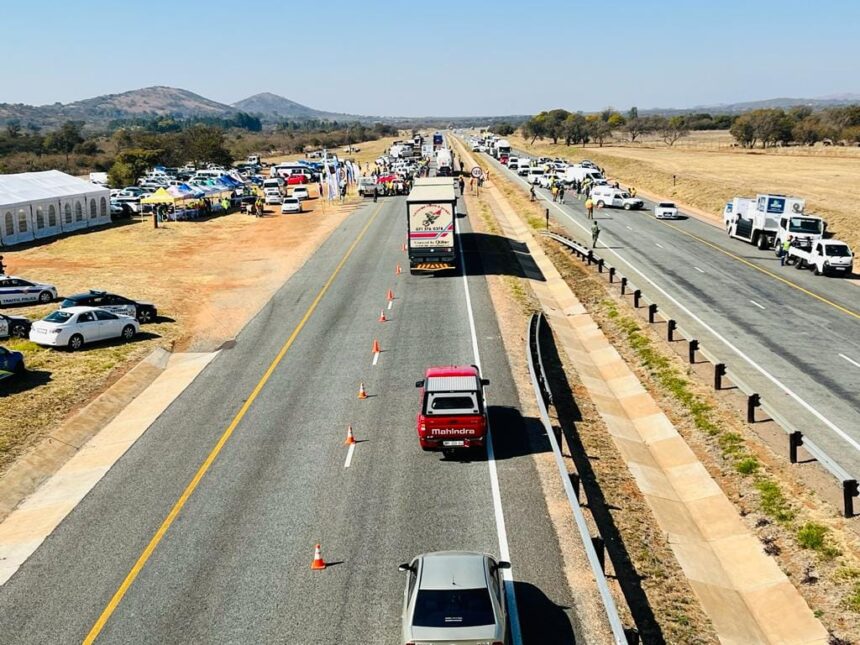Longer-term strategies to improve the flow of goods along the Trans-Kalahari Corridor (TKC) entail member states opening the TKC borders between Botswana and South Africa on a 24-hour basis, as well as establishing One-Stop Border Posts (OSBP). Member states will also consider implementing a Regional Cargo Tracking System (RCTS) to facilitate smooth trade along the corridor.
More immediate steps to address identified non–tariff barriers were recently devised and agreed upon during a meeting between Botswana and South African officials, as well as transport operators and clearing agents from Botswana, Namibia and South Africa. The purpose of the meeting was to facilitate seamless trade at TKC borders.
Some of the short-term strategies for TKC border posts include that all trucks must be pre-cleared and issued with release orders, or should proceed to border notification. Trucks that have not been pre-cleared and released should remain at the truck stop in Zeerust (South Africa), and only approach the border after being pre-cleared by South Africa and Botswana. Trucks that approach the border without having been pre-cleared by Botswana and South Africa will be turned back.
Moreover, priority will be given to perishables, dangerous goods and pharmaceuticals. Also, a transit desk will be established to seamlessly facilitate transit goods, and where possible, more human resources will be deployed to augment the current staff complement.
A statement from the TKC Secretariat (TKCS) noted that in the event of system downtime of more than 30 minutes, border authorities will revert to manual processing. To minimise costs, the printing of paper shall be done away with. Instead, release orders will be implemented. Meanwhile, Botswana will provide a facility in the Customs Management System (CMS) that will expedite the release of transit declarations.
Botswana will also undertake border assessment with a view to address parking space for trucks. In addition, social media platforms such as WhatsApp will be set up to improve communication from border authorities to transporters and clearing agents. Also, member states will consider pop-up messages to alert clearing agents where permits are required prior to lodging of declarations.
These short and long-term strategies emanate from complaints by transport operators and clearing agents regarding non-tariff barriers experienced at Pioneer Gate (Botswana) and Skilpadshek (South Africa) border posts. In a bid to understand the challenges and come up with possible solutions, the TKCS convened a meeting of all key stakeholders on Tuesday, 26 November 2024.
At the meeting, a number of challenges were identified that resulted in non-tariff barriers. These include failure to pre-clear by some transport operators in Botswana, network challenges, lack of a proper communication system, challenges that impede trade facilitation, an increase of transit volumes, as well as capacity- building of Botswana clearing agents.
The meeting was held at Pioneer Gate border post, and was attended by Botswana Unified Revenue Service (BURS), Department of Road Transport Services (DRTS) – Botswana, South African Revenue Service (SARS), Border Management Authority (BMA) – South Africa, Botswana, Bureau of Standards (BOBS), Botswana Communications Regulatory
Authority (BOCRA), Business Botswana as well as transport operators and clearing agents from the region.


